Ronaldo Luís Nazário
Ronaldo Luís Nazário
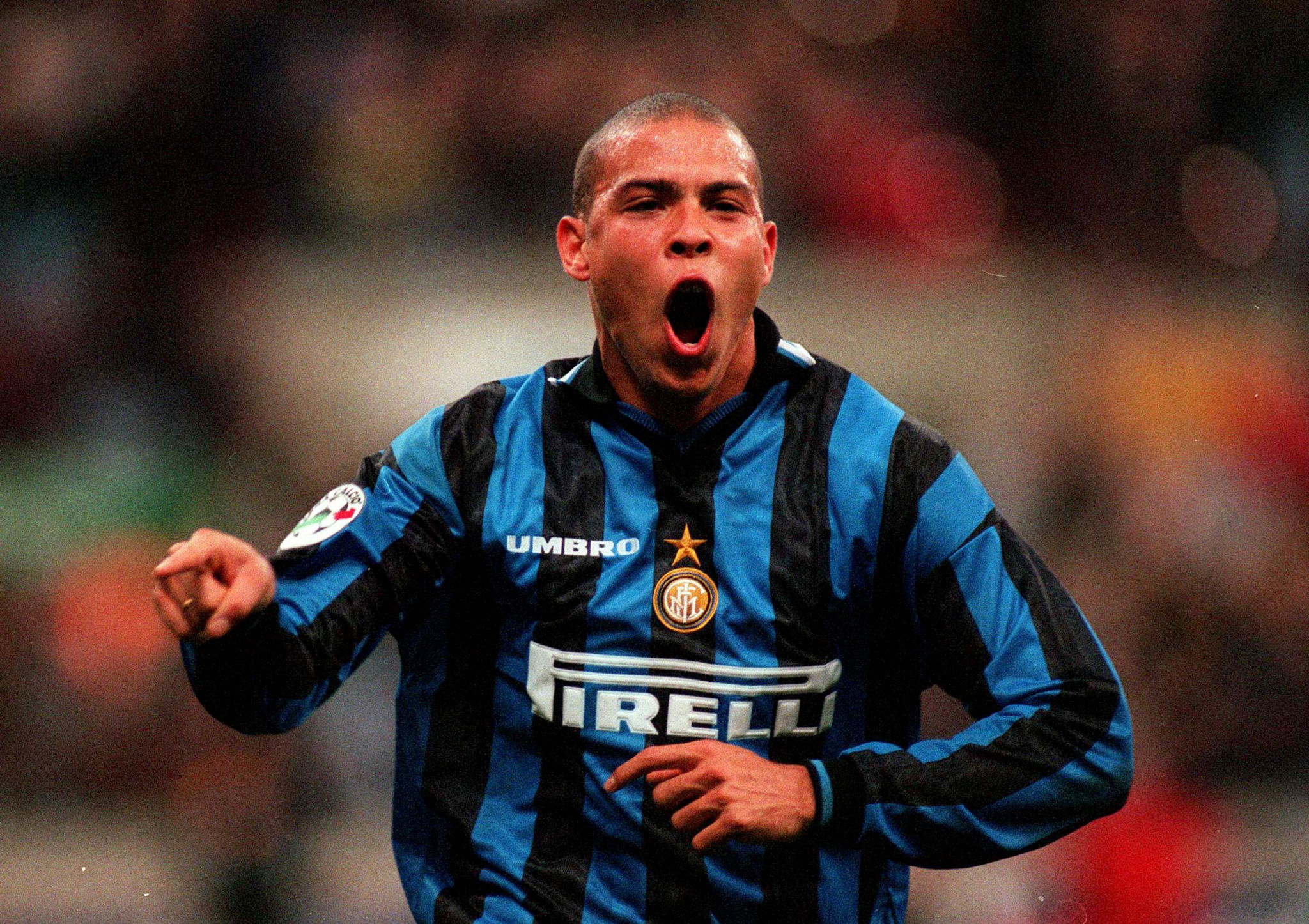
Ronaldo Luís Nazário de Lima born on September 18, 1976), generally known as Ronaldo or Ronaldo Nazário, is a Brazilian entrepreneur and the president of the La Liga club Real Valladolid. He is also the owner of the Brasileiro Série A club Cruzeiro and a former professional footballer who played as a forward. His nicknames include O Fenômeno and R9, and he is widely considered one of the greatest players of all time. Ronaldo revolutionized the striker position, leaving a lasting impact on a generation of forwards.Accumulating numerous individual awards, Ronaldo was named FIFA World Player of the Year three times and won the Ballon d'Or twice.
Ronaldo began his career at Cruzeiro and moved to PSV in 1994. In 1996, he joined Barcelona in a transfer that was then a world record, and at the age of 20, he was named FIFA World Player of the Year in 1996, becoming the youngest recipient of the award. In 1997, Inter Milan broke the world record to sign Ronaldo, making him the first player since Diego Maradona to break the world transfer record twice. At 21, he received the 1997 Ballon d'Or, remaining the youngest recipient of the award. By the age of 23, Ronaldo had scored over 200 goals for both club and country. 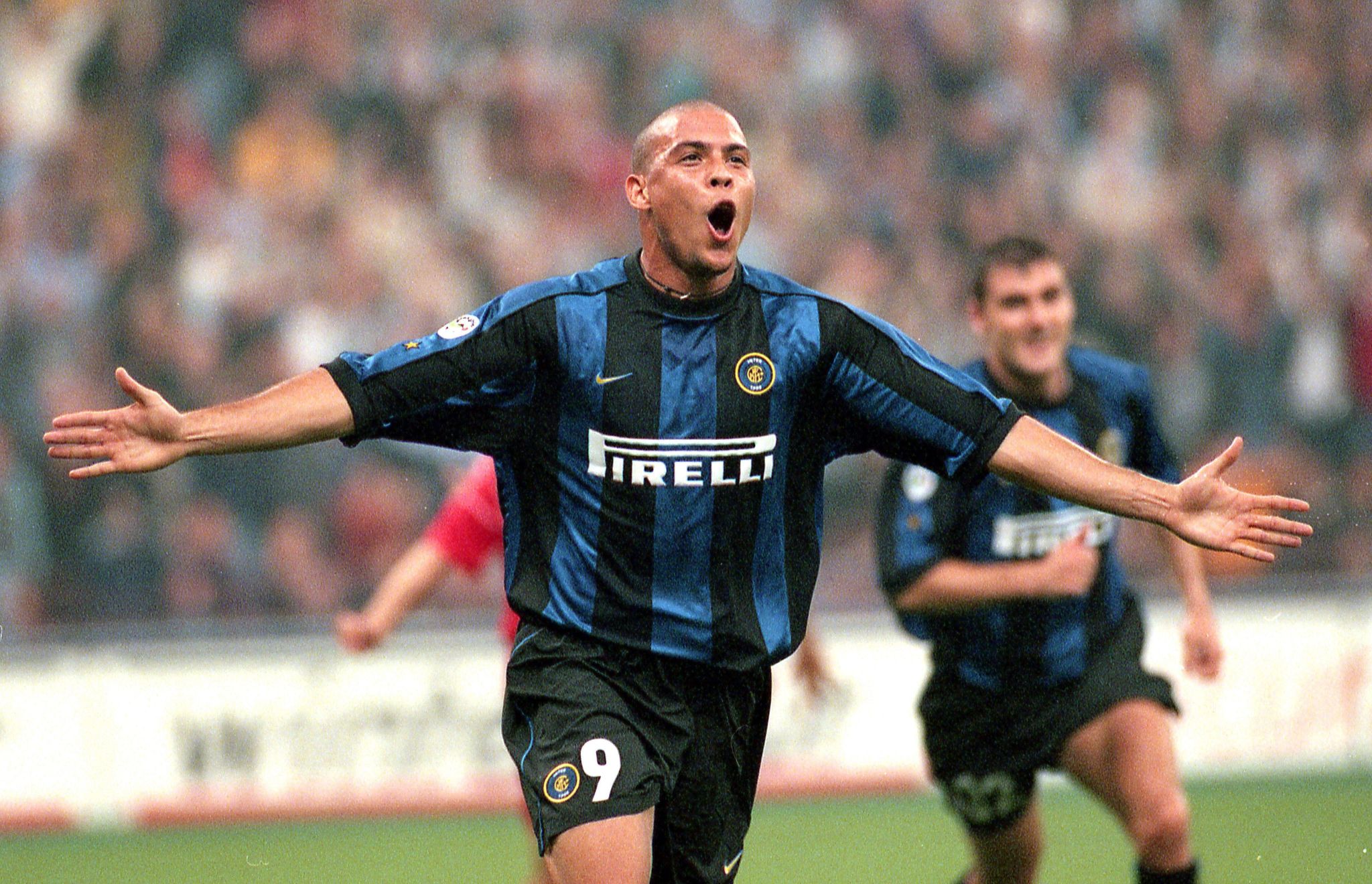
However, a series of knee injuries kept him sidelined for nearly three years. In 2002, Ronaldo joined Real Madrid and won the La Liga title in the 2002-03 season. He continued his illustrious career with spells at Milan and Corinthians before retiring in 2011.For Brazil, Ronaldo earned 98 caps, scoring 62 goals, and he is the third-highest goal scorer for the national team. At 17, he was the youngest member of the Brazil team that won the 1994 FIFA World Cup. In the 1998 FIFA World Cup, Ronaldo received the Golden Ball as the tournament's best player after helping Brazil reach the final despite a seizure hours before kickoff. 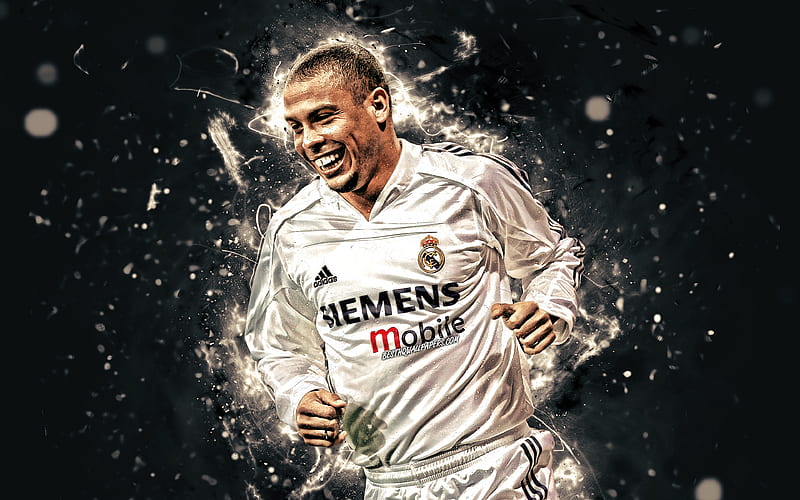
Playing alongside Ronaldinho and Rivaldo, he won the 2002 FIFA World Cup, scoring two goals in the final and receiving the Golden Shoe as the tournament's top scorer. In the 2006 FIFA World Cup, Ronaldo scored his 15th World Cup goal, setting a tournament record. He also won the 1997 Copa América, where he was named the tournament's best player, and the 1999 Copa América, where he was the top scorer.
Ronaldo was one of the most marketable athletes throughout his playing career. In 2004, he was included in the FIFA 100 list of the greatest living players compiled by Pelé. He was also honored in the Brazil Football Museum Hall of Fame, Italian Football Hall of Fame, Inter Milan Hall of Fame, and Real Madrid Hall of Fame. In 2020, Ronaldo was selected in the Ballon d'Or Dream Team, an all-time best eleven published by France Football magazine. Ronaldo continues to work as a Goodwill Ambassador for the United Nations Development Programme. In September 2018, he became the majority owner of Real Valladolid by acquiring 51% of the club's shares. In December 2021, Ronaldo purchased the controlling stake in his childhood club Cruzeiro and invested $70 million in the club.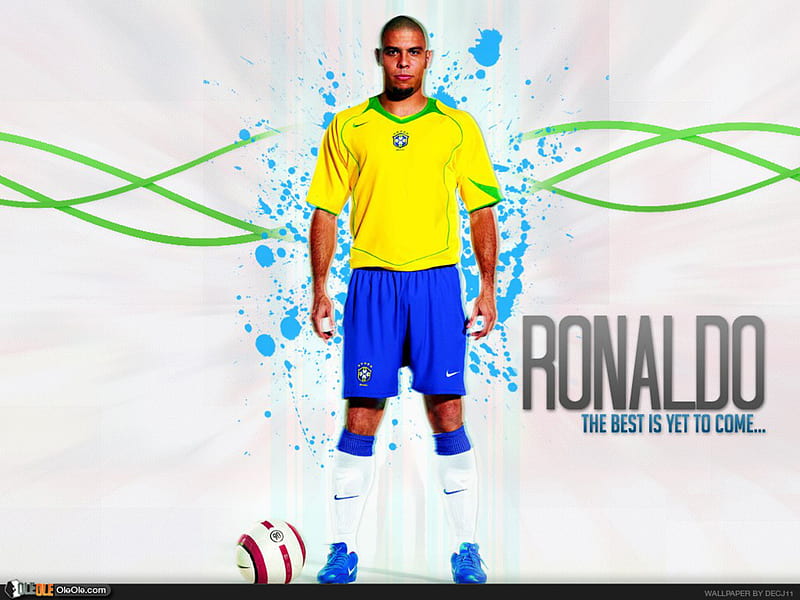
Ronaldo Luís Nazário de Lima was born on September 18, 1976, in Rio de Janeiro as the third child of Nélio Nazário de Lima and Sônia dos Santos Barata. Ronaldo has a brother named Nélio Jr., who played on the streets of Bento Ribeiro, a suburb of Rio de Janeiro. His mother recalls, I always found him playing soccer with his friends when he was supposed to go to school. I know, I lost that battle. At the age of 12, he joined the Social Ramos athletic indoor futsal team, scoring 11 out of the team's 12 goals in his first season. He led the city youth league with 166 goals. Believing that futsal would enhance his skills, Ronaldo said, futsal will always be my first love. Discovered by former Brazilian player Jairzinho, who coached at São Cristóvão, Ronaldo played for the São Cristóvão youth team, showcasing his talents. Represented in Brazil by Reinaldo Pitta and Alexandre Martins, Ronaldo was signed at the age of 13. Pitta stated, We saw right away that he could be something different from the other players. Recognized as a child prodigy, Jairzinho recommended the 16-year-old to his former club, Cruzeiro.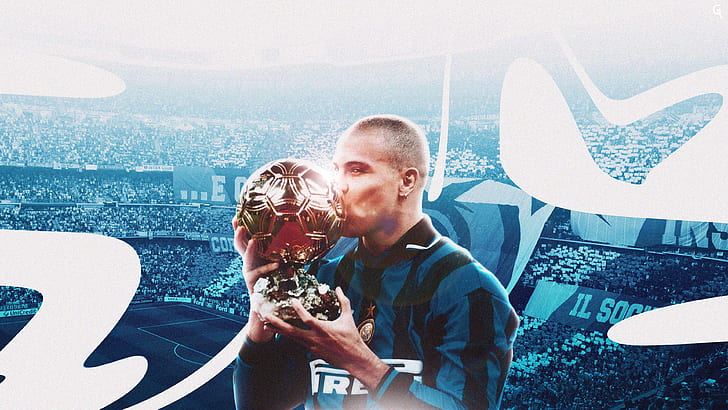
After the 1994 World Cup, Ronaldo chose to join PSV. Despite being only 17 years old, he was selected for the tournament but did not play in any matches. It was Romário who recommended Ronaldo to move to PSV; Romário had played for PSV between 1988 and 1993. In his first season in the Netherlands, Ronaldo scored 30 league goals. In the 1994-95 UEFA Cup, after a hat-trick against Bayer Leverkusen, where PSV played, the Leverkusen forward and Germany World Cup champion Rudi Völler said in a post-match press conference, "I have never seen an 18-year-old player like this in my life." Ronaldo's dribbling in the midfield caught the attention of many in the sport. His future Barcelona teammate Luis Enrique said, I saw him on TV at PSV, and I thought. He was the most fantastic player I had ever seen. He did things I had never seen before. Now we are used to seeing Messi dribble past six players, but not back then. Ronaldo was a monster.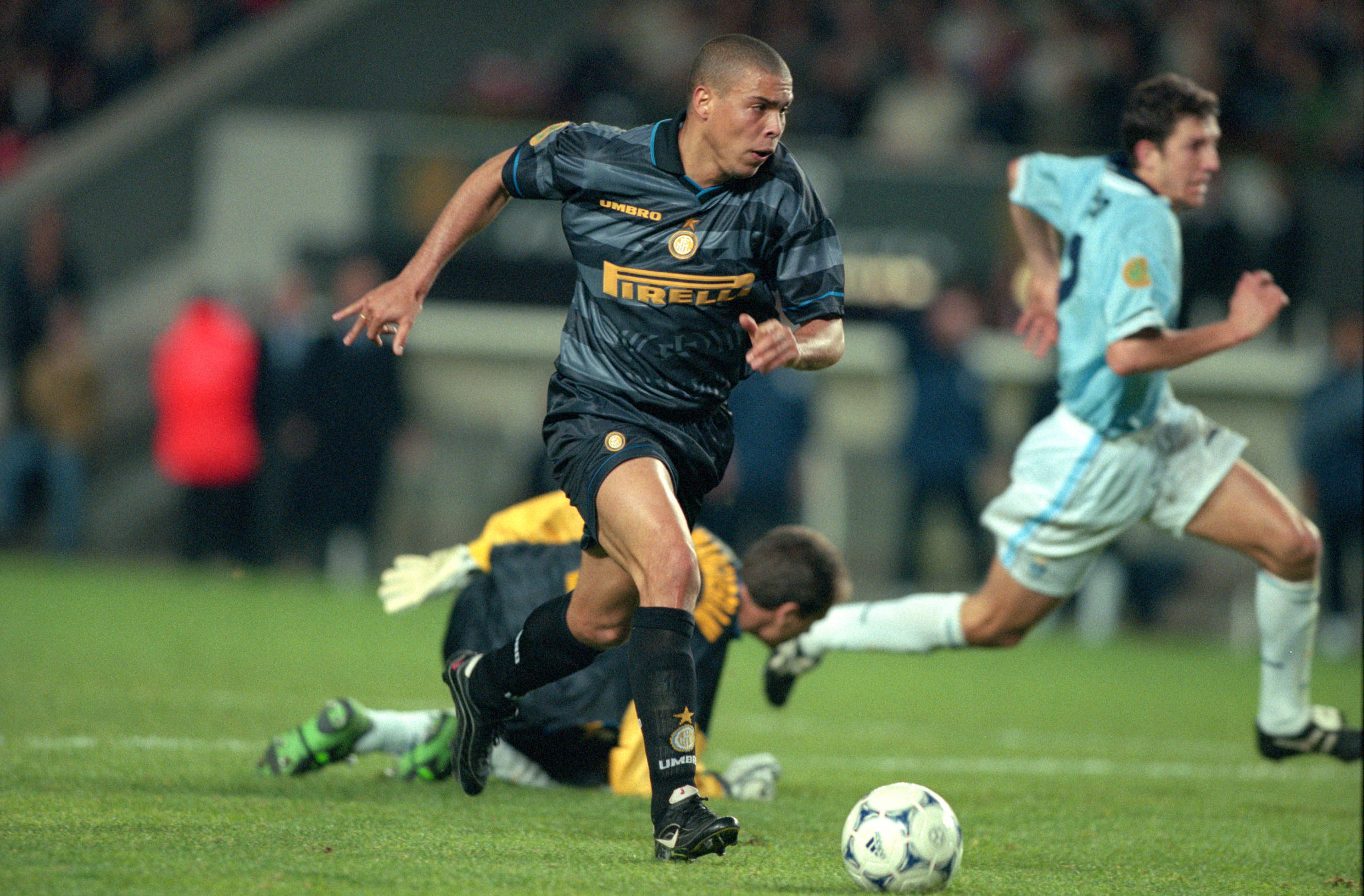
The Guardian match reporter Nick Miller writes, What was striking about Ronaldo in his first year at PSV was how complete he looked even as a skinny youngster. Everything to define him - lightning speed, blurry step-overs, an incredible impression of being faster with and without the ball, and even exceptional upper body strength - was there. Rob Smyth added, In many ways, Ronaldo was the first PlayStation footballer. The hypnosis and his signature move, the elastico, could well have come straight from a computer screen. Ronaldo's second season was overshadowed by a knee injury that kept him away from most matches, but he still scored in almost every game. He became a player who scored 19 goals in 21 matches. With PSV, Ronaldo won the KNVB Beker in 1996 and became the top scorer of Eredivisie in 1995. In his two seasons with the club, he scored 54 goals in 58 matches.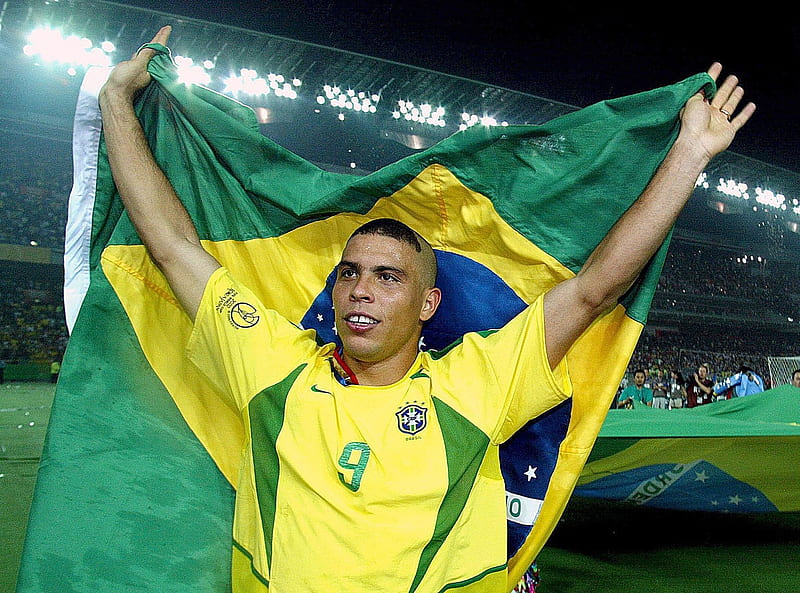
Reference
- ^ "Ronaldo's return to glory". BBC. 8 Aralık 2002. 13 Mart 2009 tarihinde kaynağından arşivlendi. Erişim tarihi: 4 Ekim 2018.
- ^ a b Mosley, James (2005). Ronaldo: The Journey of a Genius. Mainstream Publishing. ISBN 1-84018-964-9.
- ^ "The football greats forged by futsal". FIFA. 29 Ağustos 2018 tarihinde kaynağından arşivlendi. Erişim tarihi: 28 Ağustos 2018.
- ^ Baker, Stan (2012). Our Competition is the World. Lulu. s. 276.
- ^ "Ronaldo O Fenomeno: Sao Cristovao's greatest son". Goal. 4 Eylül 2018 tarihinde kaynağından arşivlendi. Erişim tarihi: 3 Eylül 2018.
- ^ "Ronaldo awaits coronation". Irish Times. 19 Ağustos 2020 tarihinde kaynağından arşivlendi. Erişim tarihi: 2 Eylül 2018.
- ^ Football's Greatest - Ronaldo. Pitch International LLP. July 2010. Retrieved 8 May 2014












































